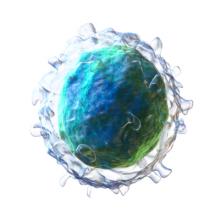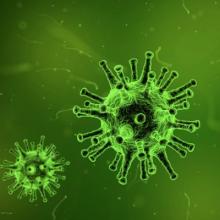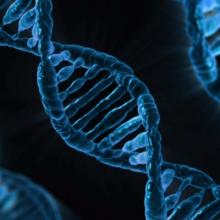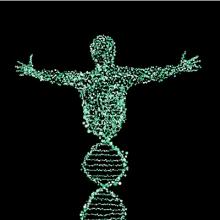Newsroom
Immunotherapy is a type of cancer treatment that uses the patient’s own cells to fight against cancer cancer cells. However, not all patients respond to this type of therapy. Our previous news report told about the rare story of a cancer patient who ultimately died from an “invisible” cancer cell… more
About one year ago, a promising form of cancer treatment suffered a serious setback. The treatment is a type of immunotherapy that uses a cancer patient’s own white blood cells to fight the cancer. This is done by adding a gene to the patient’s white blood cells that allows those cells to… more
The results of a study of over 46,000 women aged 35-74 shows that the use of permanent hair dyes and hair straighteners is linked to an increase in breast cancer. The increase was higher in black women than in white women. The overall increase in risk is small, but results like these show the… more
Human papillomaviruses cause cancer, but they may also PROTECT against cancer. Research in mice showed that infection with a group of human papillomaviruses (beta-HPV) led to a protective immune response against squamous cell skin cancer (SCC). The researchers believe that the immune response… more
Cancer treatments often target cancer cells because the cells are rapidly growing and dividing. Like all growing cells, cancer cells need lots of building blocks and supplies. One of the major items used by cells is the amino acid glutamine. Glutamine can be used to help build many different… more
Lampreys are prehistoric fish that live in waters around the world. In addition to their strange looks, they feed off of the blood of other fish. In studies conducted at the University of Wisconsin-Madison and UTexas-Austin, proteins made by the immune systems of lampreys are being tested for their… more
The U.S. Food and Drug Administration recently gave the green light to a cancer treatment created by PrimeVax Immuno-Oncology Inc. that involves the use of a virus called the dengue virus. Like many other viruses, the dengue virus causes the patient to have a fever. However, the good thing about… more
Recently, an organization called All.Can surveyed over 4,000 cancer patients from 10 different countries. The survey questions were designed to find out if patients felt the care provided by their doctors was sufficient. Unfortunately, the responses are concerning.
Perhaps the most alarming… more
We know that cancer cells are aggressive, but this takes it to the next level! Researchers at the University of Michigan have shown that breast cancer cells are able to eat other cells and gain new skills. When breast cancer cells were mixed with a type of stem cell, some of the cancer cells… more
A promising new cancer detection test is being tested at Johns Hopkins University. DELFI, which stands for DNA evaluation of fragments for early interception, detected 91% of cancer cases in a sample of 208 patients. DELFI would be more cost-effective than current cancer tests. DELFI is a blood… more
Many kinds of cancer are found more commonly in people who are obese. The reasons for this are not completely understood. A new study from the Trinity College Dublin sheds more light on the problem.
Cancer cells can be recognized and killed by immune cells called, quite appropriately, … more
Many exciting new cancer treatments are designed to let the patient's own immune system kill their cancer cells. The results can be remarkable and have saved many lives already. Two unusual cases show the power, and danger, of CAR-T cells, a type of immune-based cancer treatment.… more
As we advance our understanding of cancers such as gliomas, one thing is very clear. Cancers are highly variable. Even cancers of the same type (i.e. glioma) are not exactly the same in different patients. This variation poses a great challenge to the development of more efficient… more
The discovery of the DNA-editing bacterial enzyme CRISPR-Cas9 created great excitement because of its potential for treating and even curing genetic diseases. Now a group of researchers from Karolinska Institute, University of Helsinki, and University of Cambridge, have found a potential… more
A new study has shown the flight attendants are at increased risk for several different kinds of cancer. Flying exposes the workers to higher levels of space radiation, disrupts their sleep patterns, and exposes them to potentially unsafe air. In response to this, an industry union (http://www.… more
Whatever the flavor - cherry, mango, or mint - vaping (or Juuling) is BAD news!
One Juul pod contains as much nicotine as an entire pack of cigarettes. This makes them extremely addictive. Nicotine is a powerful drug and affects heart rate, breathing and other body functions.
Vaping products are… more
As we age, our cells age too. Some of them stop dividing and enter a state of reduced activity called senescence. Senescent cells can produce signals that lead to inflammation, aging and even cancer.
New research has demonstrated that (at least in mice) killing senescent cells can lead to… more
It is hard to overstate this. This. Is. Huge.
A woman with previous incurable breast cancer has no evidence of disease 22 months after being treated with a combination of immunotherapies.
The patient had gone through many different kinds of chemotherapy but still had large tumors growing in… more
Cancer patients have long been treated for the TYPE of cancer they have (breast, lung, prostate, etc.). Newer approaches are designed to look for drug targets that are common between cancer types. The idea is to treat the cancer based on its genetic makeup, regardless of where it appears.… more
The results of a large trial show that most women who are diagnosed with early stage breast cancer do not need to take chemotherapy. "The study found that for women with hormone receptor (HR)-positive, HER2-negative, axillary lymph node–negative breast cancer, treatment with chemotherapy and… more




















